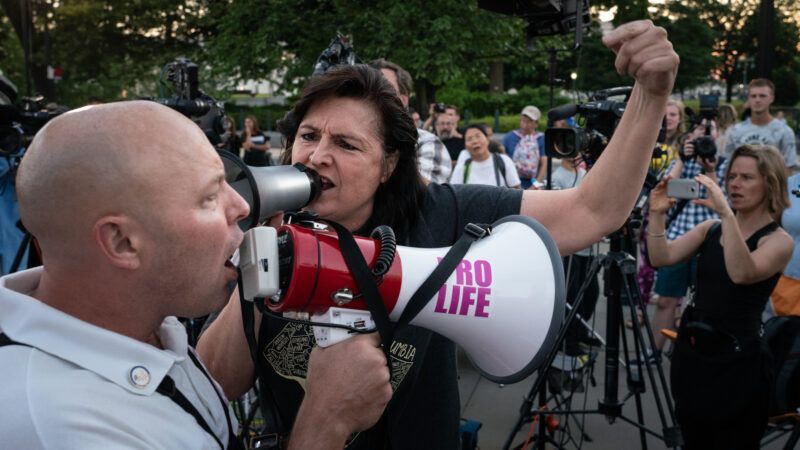Conservatives Should Worry About the Texas Abortion Law Too
The same legal ruse can be used against gun rights and other civil liberties, not just against abortion.

In Roe v. Wade (1973), the U.S. Supreme Court held that a woman may have an abortion for any reason during the first three months of pregnancy. During the next three months, up to the point of fetal "viability," the state may only enact abortion regulations that are "reasonably related to maternal health." During the final trimester of pregnancy, Roe said, a state may regulate "and even proscribe" abortion, except when "the preservation of the life or health of the mother" is at stake. In Planned Parenthood of Southeastern Pennsylvania v. Casey (1992), the Court both upheld Roe's core recognition of a woman's right to have an abortion and introduced a new standard of review in abortion cases. According to Casey, it is unconstitutional for a state to enact a pre-viability regulation for "the purpose or effect of presenting a substantial obstacle to a woman seeking an abortion." That, the Court held, would "impose an undue burden on the right."
Senate Bill 8, the Texas anti-abortion law that went into effect this week, is unconstitutional under these precedents. The Texas law bans all abortions, with no exception even in cases of rape or incest, after the sixth week of pregnancy, which is not only before the point of fetal viability but also before most women even know that they are pregnant. If the Roe/Casey precedents are enforced against this restriction in federal court, the Texas law will be struck down.
The law's authors know this so they tried to do an end run around the federal courts. Normally, when a state regulates or bans a particular activity—be it abortion, gun possession, or whatever—state officials do the enforcing and state officials are the ones who must answer in federal court when regulated parties raise a constitutional objection. S.B. 8 was expressly structured so that Texas can dodge all such legal accountability for its own law.
How? The law bans most abortions but says that state officials are not the enforcers. Rather, the abortion ban "shall be enforced exclusively through…private civil actions." According to the law, "any person" may sue "any person who…aids or abets the performance or inducement of abortion" and win a $10,000 award plus legal fees if the civil suit is successful. According to Texas, this unique scheme means that the state cannot be hauled into federal court to account for its own law because it has handed over the law's enforcement to private parties.
That legal stunt temporarily succeeded this week when a 5–4 Supreme Court declined an emergency request to block the law from going into effect while a legal challenge plays out in the lower courts. "The applicants now before us have raised serious questions regarding the constitutionality of the Texas law at issue," said the unsigned majority opinion in Whole Woman's Health v. Jackson. But because of the "complex and novel antecedent procedural questions also presented"—meaning, can state officials actually be sued in federal court over this particular state law?—the majority declined to take action.
Writing in dissent, Chief Justice John Roberts described the Texas law as "unprecedented" and maintained that the Court should have temporarily stopped it from going into effect "so that the courts may consider whether a state can avoid responsibility for its laws in such a manner." Also writing in dissent, Justice Sonia Sotomayor observed that "the Court's failure to act rewards tactics designed to avoid judicial review."
Roberts and Sotomayor are right. The state's conniving attempt to avoid responsibility for its own law does not deserve to stand.
Conservatives should be just as outraged by this legal ruse as liberals are. After all, if the Texas scheme actually succeeds in the long run, what's to stop an anti-gun state legislature from banning handguns in the home, in clear violation of SCOTUS precedent, and then placing state officials beyond the reach of federal judicial review by outsourcing the ban's enforcement to an army of private-sector gun control activists? Most gun shops would probably go bankrupt overnight when faced with the wave of private-sector civil suits that such a state law would unleash. Is that the future that conservatives want?
Regardless of what you think about the issue of abortion, the Texas abortion law is a legal menace.
